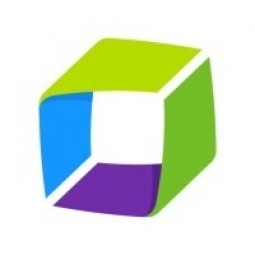Technology Category
- Cybersecurity & Privacy - Identity & Authentication Management
- Infrastructure as a Service (IaaS) - Hybrid Cloud
Applicable Industries
- Healthcare & Hospitals
- Transportation
Applicable Functions
- Product Research & Development
- Quality Assurance
Use Cases
- Behavior & Emotion Tracking
- Leakage & Flood Monitoring
Services
- Cloud Planning, Design & Implementation Services
- Testing & Certification
About The Customer
Clario is a healthcare company founded in 1972 and headquartered in Philadelphia. It has grown rapidly in recent years, both organically and through six strategic acquisitions since 2013. In 2019, Clario supported 75% of FDA approvals and was named Health IT Innovator of the Year. The company has a diverse technology stack due to its growth and acquisitions, and it is currently transitioning towards a cloud native architecture running on Kubernetes, with plans to move these workloads to AWS.
The Challenge
Clario, a rapidly growing company in the healthcare industry, found itself grappling with an increasingly complex, hybrid environment due to a series of acquisitions. Each acquisition came with its own technology stack and toolchain, adding to the complexity of the existing legacy systems and cloud platforms. The situation was further complicated as Clario began migrating towards a cloud native architecture running on Kubernetes, with plans to transition these workloads to AWS. The use of disparate monitoring tools to manage IT performance resulted in a lack of observability across all business departments and IT environments. This made it challenging to identify, understand, and resolve any anomalies or performance issues promptly, thereby hindering innovation and optimization of user experiences. Clario recognized the need to standardize its CI/CD processes and consolidate its monitoring and management solutions into a single DevOps toolchain.
The Solution
Clario chose Dynatrace to realize its vision of a unified DevOps toolchain, impressed by its easy implementation and the rich AI-powered insights it could provide. Dynatrace was set up in one of Clario’s IT environments in just minutes, quickly illuminating the entire application and infrastructure topology and surfacing insights. Dynatrace provides Clario with real-time, actionable insights into performance issues across its entire hybrid cloud environment. Performance alerts not only identify anomalies but also pinpoint the precise root cause, enabling Clario to remediate quickly and prevent problems from escalating into user-experience-impacting issues. As part of its 'One DevOps toolchain', Dynatrace enables Clario to identify performance degradations during the early stages of development, preventing bad code from progressing through the pipeline. With Keptn, Dynatrace’s open source pluggable control plane, Clario can implement automated quality gates in its software delivery pipeline, accelerating innovation even further.
Operational Impact

Case Study missing?
Start adding your own!
Register with your work email and create a new case study profile for your business.
Related Case Studies.

Case Study
Airport SCADA Systems Improve Service Levels
Modern airports are one of the busiest environments on Earth and rely on process automation equipment to ensure service operators achieve their KPIs. Increasingly airport SCADA systems are being used to control all aspects of the operation and associated facilities. This is because unplanned system downtime can cost dearly, both in terms of reduced revenues and the associated loss of customer satisfaction due to inevitable travel inconvenience and disruption.

Case Study
Hospital Inventory Management
The hospital supply chain team is responsible for ensuring that the right medical supplies are readily available to clinicians when and where needed, and to do so in the most efficient manner possible. However, many of the systems and processes in use at the cancer center for supply chain management were not best suited to support these goals. Barcoding technology, a commonly used method for inventory management of medical supplies, is labor intensive, time consuming, does not provide real-time visibility into inventory levels and can be prone to error. Consequently, the lack of accurate and real-time visibility into inventory levels across multiple supply rooms in multiple hospital facilities creates additional inefficiency in the system causing over-ordering, hoarding, and wasted supplies. Other sources of waste and cost were also identified as candidates for improvement. Existing systems and processes did not provide adequate security for high-cost inventory within the hospital, which was another driver of cost. A lack of visibility into expiration dates for supplies resulted in supplies being wasted due to past expiry dates. Storage of supplies was also a key consideration given the location of the cancer center’s facilities in a dense urban setting, where space is always at a premium. In order to address the challenges outlined above, the hospital sought a solution that would provide real-time inventory information with high levels of accuracy, reduce the level of manual effort required and enable data driven decision making to ensure that the right supplies were readily available to clinicians in the right location at the right time.

Case Study
IoT-based Fleet Intelligence Innovation
Speed to market is precious for DRVR, a rapidly growing start-up company. With a business model dependent on reliable mobile data, managers were spending their lives trying to negotiate data roaming deals with mobile network operators in different countries. And, even then, service quality was a constant concern.

Case Study
Digitize Railway with Deutsche Bahn
To reduce maintenance costs and delay-causing failures for Deutsche Bahn. They need manual measurements by a position measurement system based on custom-made MEMS sensor clusters, which allow autonomous and continuous monitoring with wireless data transmission and long battery. They were looking for data pre-processing solution in the sensor and machine learning algorithms in the cloud so as to detect critical wear.

Case Study
Cold Chain Transportation and Refrigerated Fleet Management System
1) Create a digital connected transportation solution to retrofit cold chain trailers with real-time tracking and controls. 2) Prevent multi-million dollar losses due to theft or spoilage. 3) Deliver a digital chain-of-custody solution for door to door load monitoring and security. 4) Provide a trusted multi-fleet solution in a single application with granular data and access controls.








